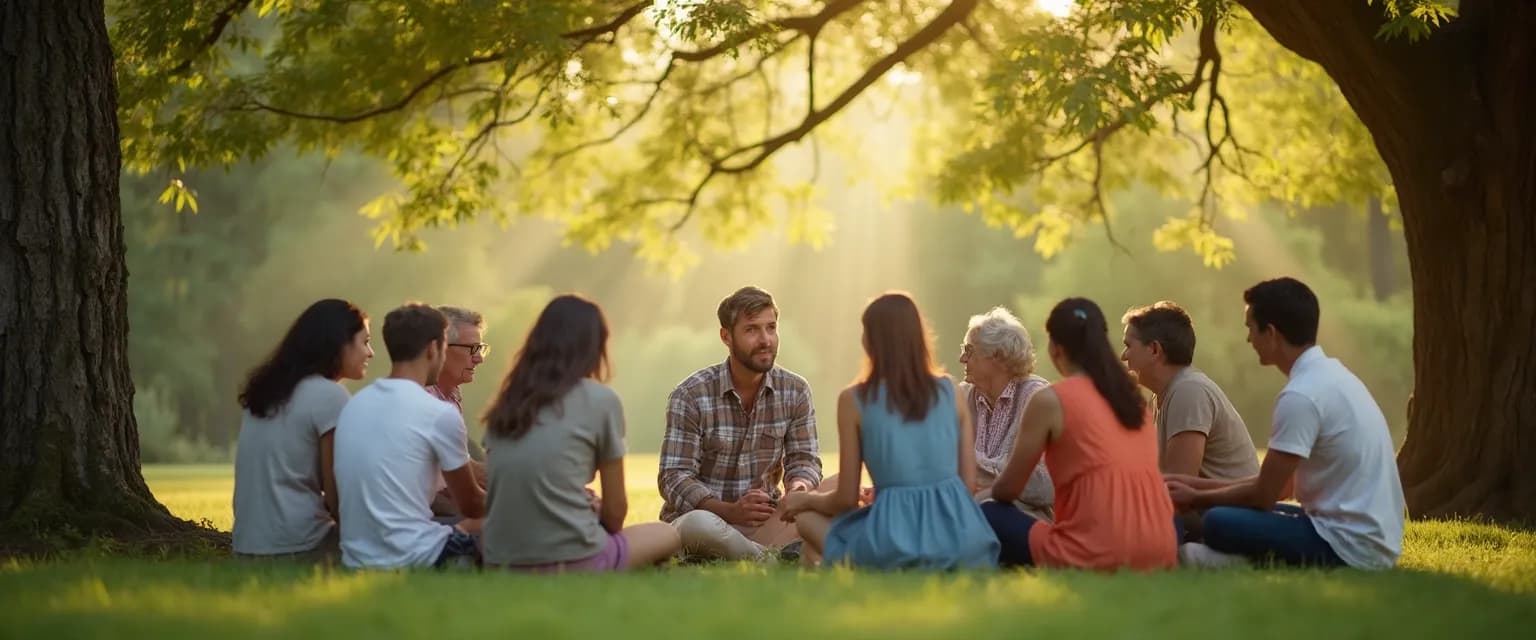Beyond Church Walls: How to GriefShare Find a Group for Secular Support
Navigating grief can feel overwhelming, especially when searching for support that aligns with your personal beliefs. While GriefShare is widely known, many seeking to griefshare find a group discover it's primarily faith-based, which may not resonate with everyone. The good news? There's a rich landscape of secular grief support alternatives that offer evidence-based approaches to healing. Whether you're looking for in-person connection or online communities, this guide helps you griefshare find a group alternative that honors your worldview while providing the support you need during difficult times.
The journey through grief is deeply personal, and finding the right support system is crucial. Many non-religious individuals feel excluded when trying to griefshare find a group that matches their perspective. Research shows that grief support is most effective when it aligns with your personal values and beliefs. Fortunately, secular options have expanded significantly in recent years, offering evidence-based coping strategies rather than faith-centered approaches.
Understanding your options is the first step to finding meaningful support. From community-based programs to digital platforms, secular alternatives to traditional griefshare find a group options provide spaces where all grieving individuals can feel welcome, regardless of spiritual orientation.
Community-Based GriefShare Find A Group Alternatives
Local community centers have become vibrant hubs for secular grief support. Unlike traditional griefshare find a group settings, these programs typically focus on practical coping skills and emotional processing without religious elements. Begin your search at your local community center, YMCA, or public library, where many offer free or low-cost grief groups facilitated by trained professionals.
Healthcare-Based Support
Hospitals and healthcare systems provide some of the most comprehensive secular alternatives when you're looking to griefshare find a group. These programs are typically led by licensed mental health professionals or social workers who use evidence-based approaches to grief recovery. Most major hospitals offer bereavement services that are open to anyone in the community, not just those who've lost someone under their care.
University counseling centers and psychology departments also frequently host grief support groups that incorporate the latest research on emotional healing. These academic settings provide excellent griefshare find a group alternatives that are both secular and scientifically grounded.
When researching local options, be direct about seeking secular support. Most program descriptions will indicate their approach, but don't hesitate to call ahead and ask specific questions about the group's framework. Effective griefshare find a group research includes verifying the facilitator's qualifications and understanding the program's structure before committing.
Online Resources to GriefShare Find A Group for Secular Support
The digital landscape has transformed how we griefshare find a group with the emergence of virtual communities specifically designed for secular grief support. Platforms like Grief in Common, The Dinner Party, and Modern Loss connect people based on shared experiences rather than religious beliefs, creating spaces where you can process grief authentically.
Digital Grief Platforms
Mobile apps have revolutionized grief support, offering on-demand resources when you need them most. When looking to griefshare find a group that fits your schedule, consider apps that provide structured emotional healing through daily exercises, meditation practices, and mood tracking. These digital tools often incorporate elements of cognitive behavioral therapy and mindfulness—evidence-based approaches that help manage grief's emotional intensity.
Virtual support groups offer flexibility that traditional griefshare find a group options can't match. Many online communities host regular video meetings where participants share experiences and coping strategies in a moderated environment. The advantage of these groups is accessibility—you can join from anywhere, which is particularly valuable for those in rural areas or with mobility limitations.
Virtual Support Communities
Social media platforms host numerous private groups dedicated to secular grief support. These communities provide informal but valuable connections to others navigating similar experiences. When using these resources to griefshare find a group, verify the community guidelines to ensure they maintain a secular approach and foster a supportive environment.
Before joining any online grief support, review their privacy policies and moderation practices. Effective griefshare find a group strategies include ensuring your vulnerable moments are shared in secure, respectful spaces. Look for platforms that clearly state their secular orientation and have active moderators who maintain a safe environment.
Whether you choose community-based programs or online resources, the most important aspect of any griefshare find a group alternative is that it respects your personal journey through grief. Secular support options honor the universal human experience of loss while providing practical tools for healing that align with diverse worldviews. Remember that effective grief support exists for everyone—the key is finding the right fit for your individual needs.




